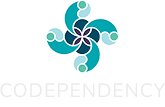
Why Couples Therapy?
Have you been wondering whether you and your partner should go to couples counseling? If so, the answer is yes. Just like if there’s a persistent pain or discomfort that you don’t understand somewhere in your body and you’re wondering whether or not you should see your doctor, you should.
Maybe something doesn’t feel quite right about your relationship. Something’s bothering you. Maybe you’re fighting a lot, or you’re having the same old arguments over and over. Or maybe you don’t fight but there just doesn’t seem to be much life juice in the relationship anymore. You don’t talk to each other as much, and when you do, the conversation feels kind of “blah.”
Maybe you’re not having as much sex, or your intimacy isn’t as fulfilling as it used to be. Maybe it’s been hard to adapt together to changes such as health challenges, the demands of raising kids, job issues, or scarcity of time and energy.
There are all types of reasons why couples come to counseling. But the bottom line is, some part of you knows that your relationship could use help. Building and maintaining a life together – and sustaining a life-giving connection — is complicated.
And the problem might not be exactly what you think it is. Or at least, the problem you’re aware of might not be at the very core of your dissatisfaction. There’s often an underlying issue, or tension, or set of beliefs and/or fears that you can’t quite see, operating beneath the surface. This not-quite-conscious stuff can have a profound impact on the quality of your conversations, your sex life, and your ability to get along.
Couples therapy helps to clear away the fog.
Why Wouldn’t You Want to Try Couples Therapy?
Many people are shy of therapy. They’re afraid of being prompted to expose their vulnerabilities before they’re truly comfortable doing that. That’s why our process at the Couples Enrichment Center is very gentle and gradual. (We don’t push; we invite.)
Also, sometimes, one partner is afraid that they’re being led to therapy in order to be “fixed” — as if they alone, as an individual, are THE problem with the relationship. And frankly, occasionally one partner will come to therapy with that notion in mind — that if only their partner would change and become “a better person,” everything would be okay. They imagine that maybe if their partner “heard it from someone else” (i.e., a person with authority – in this case, the therapist), their partner might improve their behavior or their attitude and stop doing whatever it is they’re doing that’s wrecking the relationship, or start doing what they’re supposed to do. The partner who is suggesting therapy, in a situation like this, is hopeful that, with therapeutic guidance, their partner will finally see things the way they do.
Well, of course no one wants to get taken in to be fixed. People are not automobiles. So that isn’t how this works.
Actually, in couples therapy, neither partner is the client.
The relationship itself is the client.
Your relationship is a living being, but it’s something that only exists when the two of you come together. The relationship doesn’t live in just one of you or the other. It lives within your connection, your bond, your life together.
So our focus is on the interaction between you, not on either one of you alone.
Our Warm-Up Process
We start slow. We don’t begin by trying to solve problems.
The first steps of couples counseling comprise a very thorough, carefully organized assessment of where your relationship is at and how it got here.
We begin with a kind of “get-acquainted” session where we review the story of your relationship. It’s an easygoing, relaxed conversation, and it often allows partners to access a perspective – which they may have lost sight of in day-to-day life — on the richness of the journey they’ve shared. People normally come out of this session feeling pretty calm. If they were anxious coming in, they are nearly always a good deal less so going out.
After the first session, we give you a questionnaire to fill out, which takes most people about an hour. This questionnaire is based on 20 years of psychological research; it’s as scientific an assessment tool as you’ll find anywhere in the field. That said, it’s easy to complete, with different types of questions, so the task isn’t tedious.
Next we schedule one-on-one sessions. Your counselor will meet with each of you separately, to get to know you a bit as an individual, give you a chance to share your specific perspective, and gain some insight into your unique history.
Finally we have what we call “the feedback session,” where the two of you come in and your therapist reflects back to you the overview they’ve gathered from your first meeting, your questionnaire responses, and your individual sessions. The therapist describes where they see the strengths that exist in your relationship, and the challenges.
All three of you check in with each other during this session. The therapist doesn’t dictate to you what’s happening with your relationship. Rather, they will ask, “Does this sound right to you? Would you both say that this is what’s happening?” So you get to compare notes and come to some agreement about the landscape of your relationship. Then you can proceed with a shared, explicitly articulated understanding.
Regardless of how “dug in” your difficulties seem to be, once you define them thoroughly and clearly, you can get a handle on them. When we can sum up a situation and say with some confidence, “This is what is happening. No more than this, and no less than this,” a path forward begins to appear.
Preparing for Therapy
There really isn’t much you have to do to prepare for couples counseling. It’s not a medical procedure. You don’t have to fast for 12 hours or anything like that.
The main thing is to bring your truth.
Try to have an open mind.
But most of all, bring your truth. That’s all that’s needed. The rest will unfold from there.


